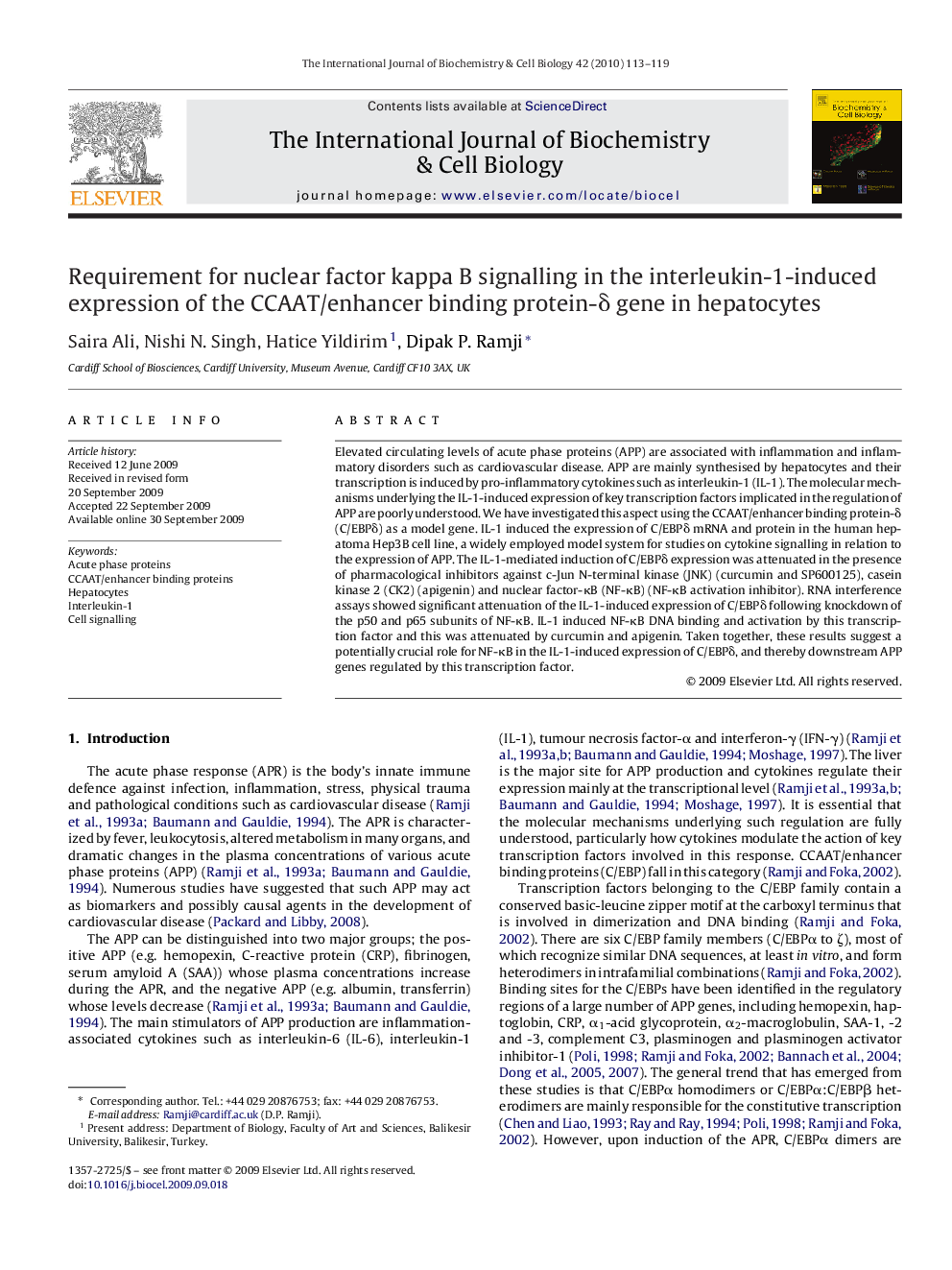| Article ID | Journal | Published Year | Pages | File Type |
|---|---|---|---|---|
| 8325529 | The International Journal of Biochemistry & Cell Biology | 2010 | 7 Pages |
Abstract
Elevated circulating levels of acute phase proteins (APP) are associated with inflammation and inflammatory disorders such as cardiovascular disease. APP are mainly synthesised by hepatocytes and their transcription is induced by pro-inflammatory cytokines such as interleukin-1 (IL-1). The molecular mechanisms underlying the IL-1-induced expression of key transcription factors implicated in the regulation of APP are poorly understood. We have investigated this aspect using the CCAAT/enhancer binding protein-δ (C/EBPδ) as a model gene. IL-1 induced the expression of C/EBPδ mRNA and protein in the human hepatoma Hep3B cell line, a widely employed model system for studies on cytokine signalling in relation to the expression of APP. The IL-1-mediated induction of C/EBPδ expression was attenuated in the presence of pharmacological inhibitors against c-Jun N-terminal kinase (JNK) (curcumin and SP600125), casein kinase 2 (CK2) (apigenin) and nuclear factor-κB (NF-κB) (NF-κB activation inhibitor). RNA interference assays showed significant attenuation of the IL-1-induced expression of C/EBPδ following knockdown of the p50 and p65 subunits of NF-κB. IL-1 induced NF-κB DNA binding and activation by this transcription factor and this was attenuated by curcumin and apigenin. Taken together, these results suggest a potentially crucial role for NF-κB in the IL-1-induced expression of C/EBPδ, and thereby downstream APP genes regulated by this transcription factor.
Related Topics
Life Sciences
Biochemistry, Genetics and Molecular Biology
Biochemistry
Authors
Saira Ali, Nishi N. Singh, Hatice Yildirim, Dipak P. Ramji,
